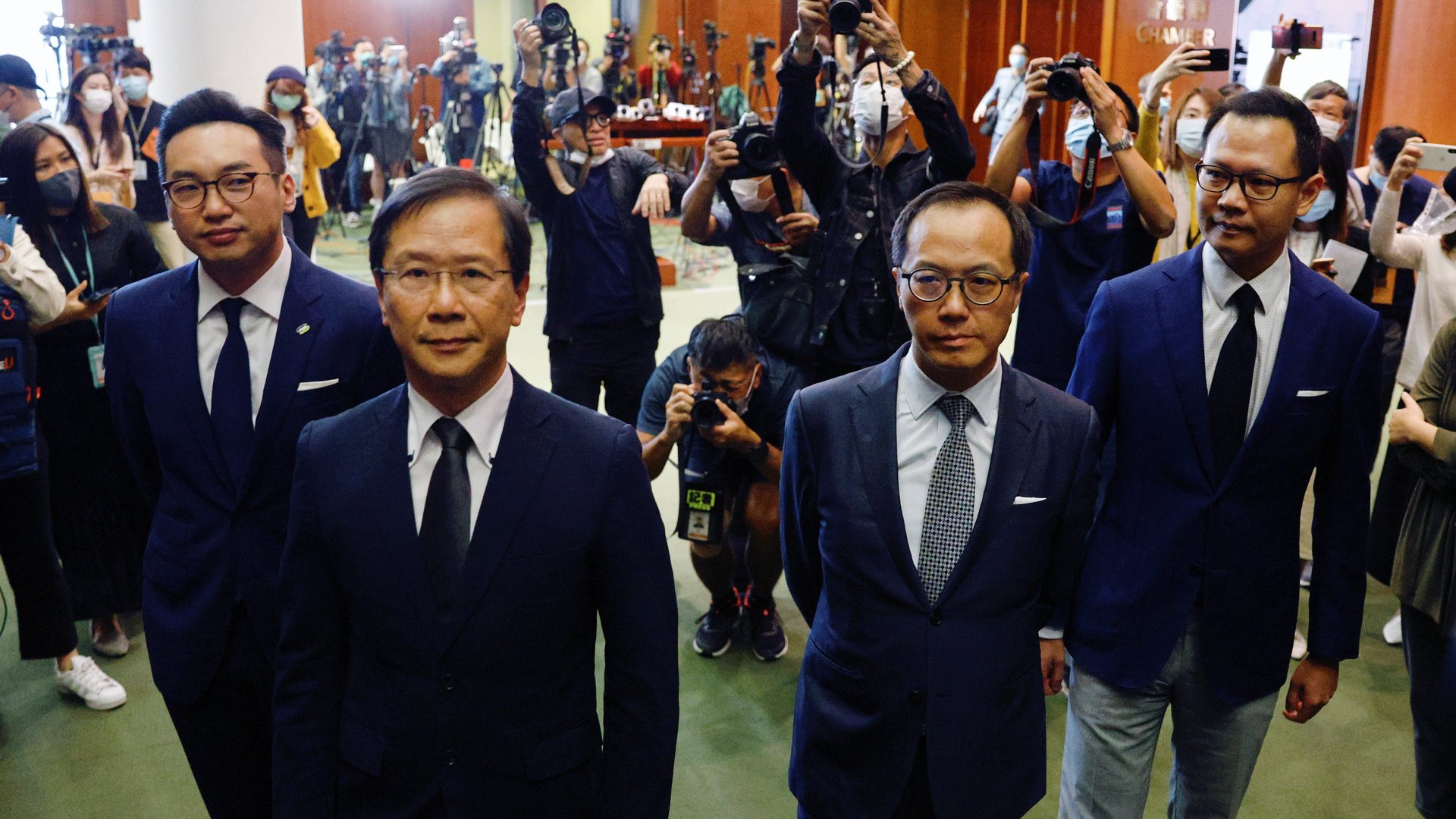China has completed its takeover of Hong Kong’s legislature
For years, China came at Hong Kong’s opposition politicians in roundabout ways to maintain a facade of legitimacy. Now the gloves are entirely off.


For years, China came at Hong Kong’s opposition politicians in roundabout ways to maintain a facade of legitimacy. Now the gloves are entirely off.
In a characteristically vague yet sweeping manner, Beijing’s top legislative body today issued a resolution (link in Chinese) mandating the immediate expulsion of Hong Kong lawmakers who voice support for independence or are otherwise deemed to endanger national security. What that entails is not made entirely clear, but anything that’s seen to endanger the Communist’s party’s grip on power, from the realm of ideas to the realm of finance, is regarded as a security threat.
Minutes after Beijing’s decision was publicized, the Hong Kong government disqualified four opposition lawmakers. The remaining 15 pro-democracy lawmakers announced they would resign en masse, which would leave the 70-member body populated almost entirely by pro-Beijing members. Or, as Beijing put it today, only patriots need apply.
“History will hold those power to account,” one of the four disqualified lawmakers, Kwok Ka-ki, wrote on Twitter. “For as long as we hold our core values dear, a new hope will emerge.”
The four disqualified lawmakers today consist of two lawyers, a doctor, and an accountant. They are considered moderates, and one even describes himself as “boring.” In their late 30s or older, they are not the young protesters clashing with police on the streets, and whom Beijing has condemned as “rioters.” Their main offense, it seems, has been to lobby the US and other foreign governments to impose sanctions on Beijing over its crackdown on Hong Kong under the national security law it imposed in June, and for vowing to veto the government’s budget.
Beijing’s latest move means that the sole remaining official channel of opposition is now shut, after a years-long process of choking off the legislature.
After the Umbrella protests fueled the election of a number of young pro-democracy lawmakers in 2016, the Party took advantage of the fact that some used their oath-taking process to protest against Beijing to devise a legal mechanism to disqualify them, wading in even as a Hong Kong court was set to rule on the issue. In other cases, the pro-Beijing local government barred candidates over political beliefs it said undermined China’s sovereignty. Popular anger over that disenfranchisement was a large part of what fueled last year’s mass protests, when millions demonstrated against a controversial extradition bill.
The authorities’ botched response to those protests and the police’s forceful crackdown delivered opposition candidates a stunning landslide victory in local district elections last November. Months later, in July, over 600,000 voters turned out for the opposition camp’s primaries—only for that election to be condemned as illegal. Not that it ultimately mattered very much: a dozen opposition candidates were barred from running altogether, before the government invoked emergency powers to postpone September’s elections for a year, citing the worsening pandemic.
If and when the elections do take place next year, there will be no opposition to compete in them. Meanwhile, Hong Kongers living in China may soon be allowed to vote from the mainland, raising concerns over potential rigging by Chinese authorities. But that’s just the way Beijing likes its elections: ones in which it knows the outcome beforehand.
Even before the latest decision handed down by China, Beijing always had ultimate control over Hong Kong’s executive and legislative branches. Today’s developments merely solidified its grip on the legislature, leaving it free to focus on the last bastion of Hong Kong’s autonomy: the judiciary, whose independence is already under immense pressure.